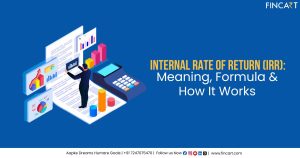Table of Contents
ToggleTaxes play an essential role in the functioning of a country, and it is the responsibility of every citizen to pay their fair share of taxes. By paying taxes, you contribute to the funding of public services such as healthcare, education, roads, and defence, and help the society grow. Let’s take a closer look at various tax-related concepts to better understand how taxes contribute to the welfare and development of a nation.
Meaning of Tax
The concept of taxation is simple – you have to pay a mandatory charge imposed upon you by the government. In turn, the government uses this revenue to fund various public services and infrastructure, including defence, railways, roads, healthcare, education, communication, power, etc. The government levies taxes on individuals and entities such as businesses, corporations, HUFs, and associations of bodies to ensure that everyone contributes to the smooth functioning and development of the country. Some basic tax concepts are:
- It can only be levied by local municipal bodies, the State Government, and the Central Government.
- Taxes can be imposed annually (like income and property tax) or on each transaction (like sales tax or GST).
- You can be charged taxes directly or indirectly.
- Tax laws are governed by specific legislations such as the Income Tax Act and the GST Act.
- Tax laws can change due to various reasons like economic conditions, new government policies, and international agreements, so it’s important to keep up with these changes to remain compliant.
How Does the Taxation System in India Work?
The taxation system in India is quite comprehensive and involves the State Government, Central Government, and Local Municipal bodies collecting taxes from citizens through direct and indirect means. The main method of direct tax collection is through income tax, while the Goods and Services Tax (GST) is the primary form of indirect tax collected. Here’s how taxation in India works-
Income Tax
The income tax system is progressive, which means that taxpayers with higher incomes are required to pay a bigger percentage of their annual earnings in taxes compared to those with lower incomes. This structure is designed to make sure that the tax burden is equitably distributed amongst citizens. The laws governing income tax can be found in the Income Tax Act of 1961, which outlines the rules and regulations about how the taxes are calculated, levied, collected, and more. According to this act, every taxpayer must classify their income into five heads of income
- Income from Salary
- Income from House Property (which is the rental income from property owned by the taxpayer)
- Profits and Gains of Business or Profession
- Income from Capital Gains (profits made after selling capital assets such as mutual funds, properties, stocks, and bonds)
- Income from Other Sources (such as royalties, lotteries, interest, and dividends)
The Income Tax Act also allows taxpayers to reduce their taxable income through deductions, exemptions, and benefits given under various sections. Most of these deductions and exemptions are available only under the old tax regime, which has higher tax rates. Taxpayers following the new tax regime do not have many ways of reducing their taxable income, but they do get the benefit of lower tax rates and a higher exemption limit.
Don’t fall behind your taxes!
Get in touch with Fincart to handle your taxes and optimize your savings.
Goods and Services Tax
GST is an example of regressive taxation because it applies the same tax rate to all consumers regardless of their income level. This means anyone buying a good, such as a mobile phone, pays the same percentage of tax, whether they earn a high income or low income. These taxes are paid indirectly to the government as they are included in the final price of goods and services at the point of sale. The seller pays the taxes to the government on your behalf.
Let’s take a look at different taxes to gain a better understanding of tax concepts in India.
Types of Taxes
Broadly, there are two types of taxes in our country – Direct Tax and Indirect Tax. Here’s an overview of these tax concepts:
Direct Tax –
You pay these taxes to the government yourself, and you cannot transfer them to another entity. They are controlled by the Central Board of Direct Taxes (CBDT). Some types of direct taxes are:
| Tax | Meaning |
| Income Tax | Income tax is the most common form of direct taxation. The government imposes income tax on individuals, businesses, HUFs, and others every year on their incomes. Taxes are calculated by applying the relevant tax slab rate on the taxable income. |
| Corporate Tax | Any domestic or foreign company registered in India is required to pay corporate tax directly to the government. The tax amount depends on various factors such as the size of the company and the nature of its business. |
| Capital Gains Tax | Capital gains tax is levied in two forms – Short-Term Capital Gains Tax (STCG) and Long-Term Capital Gains Tax (LTCG). Whenever you sell an asset like shares, a capital gains tax is levied on the profit you make. The tax rate varies based on how long you hold the asset. |
| Wealth Tax | This tax was levied on the net worth of individuals, HUFs, and companies, but it was abolished by the government in 2015/16. |
Indirect Tax –
You pay indirect taxes to a party, such as a retailer or service provider, who then remits the tax to the government. You don’t pay these taxes to the government directly, rather they are already included in the final price of a good or service. For example, if you buy an air conditioner from a retailer, the price you pay includes the GST charged by the government. The retailer collects this tax from you and then passes it on to the government. The Central Board of Indirect Taxes and Customs (CBIC) governs indirect taxes in India.
Here are some examples of indirect tax:
| Tax | Meaning |
| Goods and Services Tax | GST was implemented in 2017, and it subsumed a range of indirect taxes that were previously levied by both the Central and State governments. These included central excise duty, service tax, VAT, and many others. Whenever you buy a product or service, the GST is already added to its final price. |
| Customs Duty | Customs duty is levied on goods and services you purchase from abroad, that is, things imported into the country. |
| Excise Duty | This type of tax is levied on manufacturers of certain products such as alcohol and tobacco. With this tax, the government can regulate the production and consumption of certain goods. |
Also Read: Direct vs Indirect Tax: Understanding Key Differences
Other Types of Taxes
While direct and indirect are the two main types of taxes, there are several other ways through which one can be taxed. Understanding these tax concepts and types can give you a full view of taxation in India:
- Securities Transaction Tax (STT) – Every time you sell or purchase securities on the stock exchange, you are required to pay a securities transaction tax. The rate of STT depends on whether you purchased the security or sold it, and also on the type of security.
- Stamp Duty and Registration Fees – When you buy an asset like real estate, you must pay stamp duty and registration fees. Stamp duty is a tax on legal documents that proves that a transaction is legitimate. Registration fees are charges for officially recording the transaction with the government.
- Cess – The government levies a health and education cess (4%) on income tax payable by individuals and corporations. It is not calculated on your taxable income, rather it is charged based on the income tax amount due.
- Toll Tax – Road and toll tax is imposed when travelling on certain national highways, state highways, bridges, and expressways. They help maintain and improve the country’s road infrastructure.
Benefits Of Taxes
The taxation system in India allows the government to run the country smoothly. Here are some ways your taxes benefit you and the nation:
- Taxes help the state and central government fund the construction and maintenance of transportation infrastructure such as roads, highways, bridges, and public transport.
- Taxes also fund services like education, healthcare, law enforcement, railways, and education, so they become better and more accessible to people.
- They also support the military, which is crucial for national safety.
- Since direct taxation in India is progressive, it helps in wealth redistribution. The upper class pays more in taxes which helps the government start social welfare programs, which are helpful to the economically weaker sections of the society, thus reducing economic disparities.
- Knowing about the various tax concepts can help you save more of your hard-earned money while ensuring compliance with the tax laws.
- An ITR of the past two or three years is required if you apply for a visa.
- Similarly, an ITR can supplement your financial documentation when you apply for home loans.
Also Read: What is Tax Planning – Objectives, Types and Process
Why is it Important to Pay Your Taxes on Time?
It’s important to pay taxes on time because:
You’re Legally Required To
Every business and individual is legally obligated to pay taxes on time as mandated by the government under the taxation system in India. Avoiding paying taxes or filing them late can result in penalties. A tax consultant can help you navigate these obligations efficiently.
It Helps Avoid Last Minute Hassles
Filing your ITR at the last minute can result in entering incorrect or incomplete information, which in turn can result in errors in reporting your income, deductions, or other important details. These mistakes can also result in penalties or have other legal consequences.
It Can Delay Refunds
Late filing of your Income Tax Return can cause delays in receiving any tax refunds you’re owed. This is an inconvenience that can be avoided by simply paying taxes on time.
It Helps With Financial Planning
By knowing and calculating your tax liabilities in advance you can stay on top of your financial planning and budgeting.
You Contribute To Developing The Country
The taxes you pay are used by the government to fund building essential infrastructure, supporting national defence, and providing public services such as healthcare, education, communication, transportation, and the police. Taxation in India is thus essential for the
progress of the nation.
New Tax Reforms
The taxation system in India changes from time to time. These changes include revised tax slab rates, introducing new tax laws, modifying the existing laws, and implementing new tax structures. Some examples of changes to the system of taxation in India are:
- The new tax regime, which was proposed for the first time during the Union Budget 2020/21 aims to simplify the tax structure and provide taxpayers with the option to pay taxes at reduced rates but without claiming any exemptions and deductions allowed in the old regime. You can choose between the two regimes before filing your taxes, but the new tax regime is the default.
- The new tax regime also effectively raised the income tax exemption limit from Rs. 5 lakh under the old regime to Rs. 7 lakh.
- The surcharge rate has also been reduced from 37% to 25%.
- In 2017, the Goods and Services Tax was introduced which changed the indirect tax structure. Many indirect taxes, such as the central excise duty, service tax, and VAT were subsumed under GST.
FAQs on Basic Tax Concepts in India
How can I determine the amount of income tax I need to pay?
To know the exact amount of income tax you need to pay, you first have to calculate your taxable income. This is done by subtracting deductions and exemptions, such as HRA/LTA exemptions or Section 80C deductions from your gross total income. Then, you can calculate the tax by applying the appropriate tax slab rates to your taxable income.
How does taxable income differ from exempt income?
Taxable income refers to your gross total income minus the relevant exemptions and deductions. Your tax liability is calculated on the taxable portion of your annual income. Exempt income, on the other hand, is the income that isn’t taxed at all, such as leave travel concession, gratuity, HRA (under certain conditions), agricultural income, and others. The list of income exempt from income tax can be found under Section 10 of the Income Tax Act.
What does the term ‘Profession’ signify according to the Income Tax Act?
The exact definition of the term ‘profession’ can be found under Section 2(36) of the Income Tax Act. ‘Profession’ is defined as a vocation that requires intellectual skills or specialised training in a field such as law, engineering, or medicine.
How are excess taxes refunded?
If you paid more taxes than you owe, such as in the case of higher TDS deductions, the extra taxes are refunded by the Income Tax Department. You must file your income tax return to claim this refund. After the department verifies and processes it, your money will be credited to the bank account you mentioned in your ITR.
What amount of income do I need to earn to be subject to taxes?
If you earn over the basic exemption limit, you must pay income tax. This limit is different under the new tax regime and the old tax regime. Under the old tax regime, it is Rs. 2.5 lakh for people below 60, Rs. 3 lakh for individuals above 60 (senior citizens), and Rs. 5 lakh for individuals above 80 years (super senior citizens). The new tax regime has different slabs without exemptions. Sections 87A and 115 BAC (1A) also provide rebates that reduce tax liability to zero for incomes up to Rs. 5 lakh for the old regime, and Rs. 7 lakh under the new regime.




